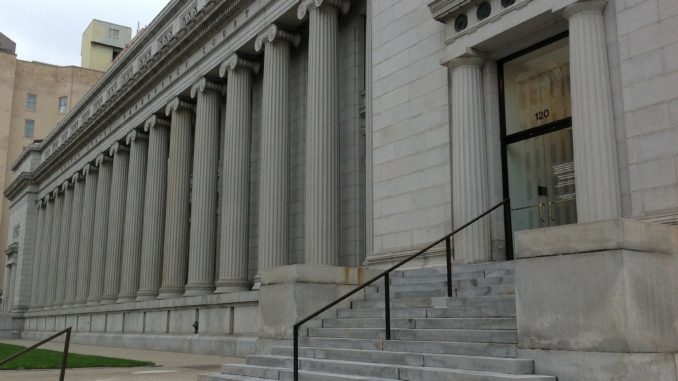
You probably know of pioneering legal AI company Neota Logic already. But, did you know they also have been working hard for some years on delivering Access to Justice (A2J) initiatives via the leveraging of legal technology?
Artificial Lawyer caught up with Max Paterson, Senior Director, Education & Community Programs and Kevin G Mulcahy, VP Education & Community Programs at Neota Logic and who is also an Adjunct Professor of Law, Georgetown University Law Center, to learn some more about these initiatives.
Paterson and Mulcahy explain that Neota’s mission has been to try and help train the new generation of lawyers, and part of that is to feel confident with legal tech, including the expert systems and legal data capabilities that Neota has developed. In turn these efforts have helped create A2J applications that are tech-led, and as shown below, some are providing real benefits to people.

As part of this effort Neota started working with law schools around the world, for example, Georgetown in the US. Students learn about legal tech tools and its possibilities then develop solutions to A2J and other legal problems. Today they have worked with 14 law schools around the world, including in Canada and Australia, with the aim now of doing the same in London and also Singapore.
‘The growth globally is a reaction to the need in law schools for greater legal tech education,’ notes Paterson.
Not all the projects students work on go onto become ‘a thing’ as they say, but some do. And a select few really do become something special. For example, one project that Neota was involved with for Elder Law has even seen a $0.5m grant from the US Department of Justice, which perhaps is a sign of things come in terms of A2J and tech combining in a way that attracts the support of government.

Mulcahy adds that not all of the A2J applications come directly from the student programmes. The Employment HQ app is designed to help employees find out if they eligible for job-protected leave under the US Family and Medical Leave Act. Armed with that information they can then more confidently deal with bosses who perhaps may seek to deny them their rights.
It’s a Q&A system and assesses the scenario to provide an answer. Mulcahy says that it has been very successful. ‘It’s been a way to interact with the public, and people who have used it even start to feel that the app really knows them,’ he adds.
In fact, considering that most people can never afford a lawyer nor ever receive any substantive legal input that is tailored to help them, just having a legal tech app ask questions about you and then work its way to providing an answer must feel like a revelation to many people, even if this is all digital, and of course, not the giving of legal advice, just information.
Paterson concludes: ‘Neota Logic has a strong commitment to access-to-justice projects…and generally to build apps that provide solutions for people who otherwise would not have access to legal resources.’ The employment app, for example, certainly has been a success so far, with over 62,000 uses of the system.

For an overview of some of the projects Neota has been involved in, please see below:
The Neota Logic Law School Programs – Rapidly developing apps and 21st century professionals
Neota Logic is used by law students to build expertise automation apps for non-profit or pro bono organisations.
Through the NL law school course, in addition to learning about Neota Logic, students learn client management skills, product development, design thinking, and programming skills, without having to know how to code.
Schools that currently offer Neota Logic courses include: Georgetown Law School, University of Melbourne, Michigan State University, Cornell Law School, and others in Australia, Canada and the US. For more information see: Examples of Expertise-Automation Applications
Employment HQ – Self-service solution for workers who need to make and prove their case to their employer
This app helps people determine whether they are eligible for job-protected leave under the Family and Medical Leave Act, which is often a contentious issue between workers who need their job held for them while address a medical issue, and employers, who often feel that the right to job-protected leave is often abused by workers.
The app performs a detailed analysis of the worker’s situation and provides a robust report that can be share with the employer in order to demonstrate the legitimacy of the employee’s request for leave. This is a fully self-service system that involves no intervention by a lawyer. More than 62,000 people have run a session and provided their email to get the report from this system.
Airport Lawyer – Rapid response by tech-saavy lawyers
This project was a collaboration between lawyers and technologists to respond to President Trump’s January 2017 ban on refuges and citizens from seven countries. A Neota Logic app was built and deployed in two days to bridge the gap between arriving travelers and volunteer attorneys.
Elder Law Risk Detector – Legal aid app gets funding while traditional legal aid struggles –
The Elder Law Risk Detector was designed and developed by Georgetown Law students for New York City social workers to use when they visit the elderly clients of a senior citizen support agency. Since its first version, this application has received grant funding from the US Department of Justice in the amount of $500,000 for extensions, enhancements, and wider implementation. You can see a TV news report by local TV station in Buffalo NY about the app here.
5 Trackbacks / Pingbacks
Comments are closed.